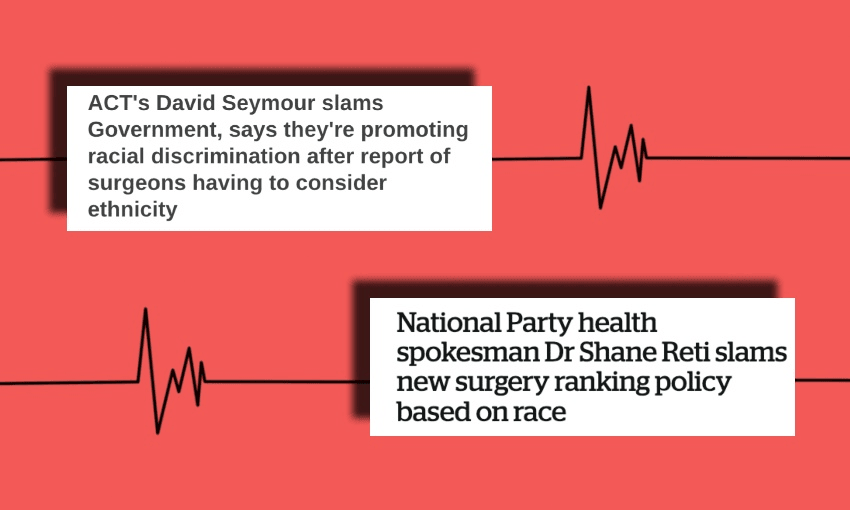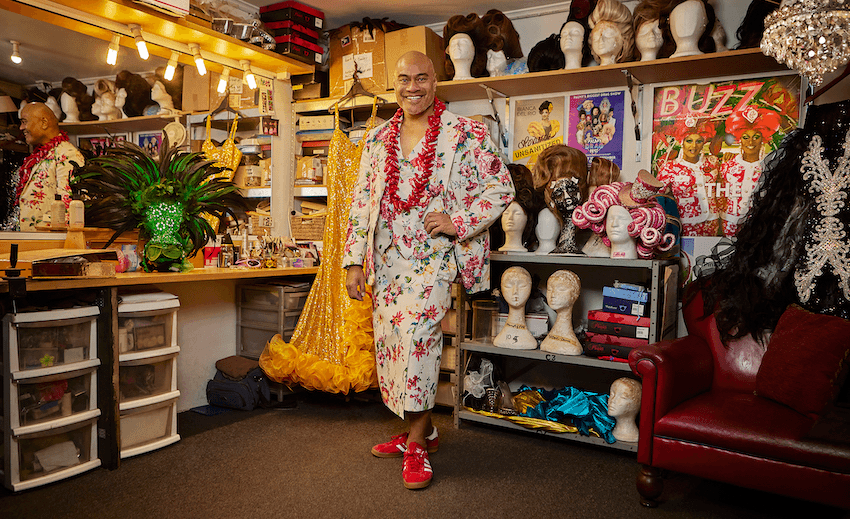Is it racial discrimination to have ethnicity as a factor when prioritising patients? Not when some ethnicities are far more likely to die first, writes Mad Chapman.
“Auckland surgeons are now being required to consider a patient’s ethnicity alongside other factors when deciding who should get an operation first.”
So began the report this morning from Newstalk ZB’s Barry Soper and Jason Walls about the newly introduced (in Auckland) equity adjuster score, an algorithmic priority assessment tool from Te Whatu Ora based on five patient factors: clinical priority, time spent on the waitlist, geographic location, ethnicity and deprivation level. In combining all five factors, patients receive a priority score while they await surgery.
Priority scoring is nothing new. And a number of DHBs (back when there were DHBs) already implemented an ethnicity factor in 2020. The reasoning at the time (which remains) was presented by Auckland DHB chair Pat Snedden in the proposal. “Our data shows Māori and Pasifika patients take longer to move from referral to listing for procedure and often have to present multiple times.” In other words, Māori and Pacific patients have to wait longer before they even get to receive a priority score.
“Our current system privileges some groups already. Māori and Pasifika are not in that group usually.”
Te Whatu Ora interim lead for Te Toka Tumai Auckland, Mike Shepherd, said a person’s ethnicity may earn them an extra one or two points out of 100 when the tool calculates a priority score.
The tool is being used in Auckland – and is about to be rolled out in Northland after it was shown to help with inequities in health outcomes – and as the headline suggests, “some are not happy”. That includes Act’s David Seymour and National’s health spokesperson Shane Reti who both “slammed” the assessment process as encouraging racial discrimination and elitism.
Currently the most popular article on the Herald is Reti saying, “I would refuse to rank patients based on ethnicity”, as if the whole health system isn’t already set up in a way that ranks Māori and Pacific people last.
Why might Auckland surgeons be required to consider a patient’s ethnicity when deciding who should get an operation first? It’s not to consider whether or not you think a patient’s ethnicity is cool and worth prioritising. When flipped the other way: which ethnicity is most likely to die first in Aotearoa?
First place: Māori and Pacific people
By almost every measure of health, Māori and Pacific people are the worst off. The life expectancy of a Māori male in 2021 was 73.4 years. For Pacific males it was 75.4. Meanwhile for European (and other), the life expectancy was 81, while for Asian males it was 85.1.
For females, it’s Māori again expected to die first (77.1) then Pacific (79), then European (84.5) then Asian (87.9).
Fun side note: superannuation in New Zealand begins at 65 and is the highest beneficiary spend by a country mile. Looking at the life expectancy across ethnicities, some benefit far more than others from New Zealand’s beneficiary system.
Māori, Pacific and those with lower socioeconomic status – surprise, those categories tend to overlap – experience higher levels of chronic illness, which is the leading cause of mortality.
A 2019 study found that Māori and Pacific people have a higher incidence of out-of-hospital cardiac arrest and at a younger age, despite being twice (Māori) and 1.5 times (Pacific) more likely than Europeans to die of ischaemic heart disease. They are also less likely to survive beyond 30 days after a cardiac arrest.
A 2020 review of 24 quantitative studies linking self-reported racial discrimination and a range of health measures found that self-reported racial discrimination is associated with “poorer health outcomes and reduced access to and quality of healthcare”.
How might these disparities be lessened?
Health outcome equity is not something that can be achieved overnight, or even over-year. Māori and Pacific people are overrepresented in every negative health stat and underrepresented among health professionals, for example, surgeons and those who make referrals for surgery.
Deprivation is a key factor in health outcomes and poverty and income inequality (Māori and Pacific people continue to be paid less than Pākehā for doing the same job) is at the root of the problem. But at the same time, small process changes can be made to make some outcomes more equitable. When Māori and Pacific people are more likely to experience delays between presenting with symptoms and referrals for treatment, they’re already way down the priority list. A few points in their favour for the honour of being Māori or Pacific in the New Zealand health system is simply bringing them up to the starting line.



